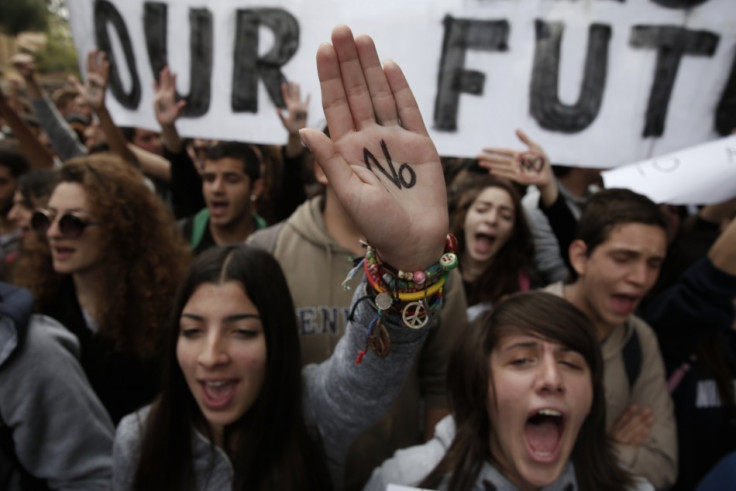Cyprus in Crisis: President Asks EU for Financial Assistance Despite Bailout

Cyprus is asking European Union officials for extra financial assistance and support while the country waits for its bailout but is apparently not asking for an increase to the agreed €10bn emergency fund.
Cyprus' President Nicos Anastasiades told reporters in Dublin that he will be sending a letter to European Commission President Jose Manuel Barroso and European Council President Herman Van Rompuy, requesting additional assistance, given the beleaguered economic situation of the island.
However, Eurozone officials have been quick to dismiss the request as a plea for more cash and that there are no plans to raise the total bailout amount.
"The letter from President Anastasiades has nothing to do with asking for more money than the sum agreed in the Memorandum of Understanding (MoU). It is about a request for more support and financial assistance from our EU partners in the middle-term because of the financial and economic situation Cyprus is facing. For example, it asks about finding ways to use EU structural funds in better ways to help Cyprus," says EU Brussels-based spokesperson Michalis Koumides.
Another EU spokesperson adds that "there is a big misunderstanding about this in the press this morning. The Cypriots are asking for help in the form of technical assistance with structural funds absorption which is what we have committed to provide through the Task Force for Cyprus that is being established."
Despite this, media reports have surfaced, saying Cyprus may have to find an additional €6bn to close the newly estimated financing gap, and has made plans including selling of gold reserves worth €400m to do so.
According to news agencies citing a draft document prepared by the country's creditors, the cost of the bailout for Cyprus has increased to €23bn, whereas the original cost of the bailout was initially agreed at €17.5bn.
If this total is correct, Cyprus will have to find €13bn to secure €10bn from the European Union and the International Monetary Fund (IMF).
Barclays Capital told investors in a research note on Friday that "the cost of the increased demands on Cyprus allegedly emerged in a draft document prepared by the country's creditors [but] such a revision in the programme would, however, be massive scaled back to GDP (€6bn = 30 percent of GDP), and surprising, coming only a couple of days after overall amounts were revealed."
"Hence, we would suggest taking this info with a grain of salt and waiting for programme details to be released shortly after finalization of the MoU," it adds.
Investors lost their four-day winning streak on Friday, after European shares fell on concerns that Cyprus' economy is in worst state than expected.
While FTSEurofirst 300 index rose for the last four days, it was down by 0.6 percent at 1,186.10 points, as of 1300 BST with most individual European equity markets down over 1 percent.
The IMF forecasts Cyprus to contract almost 9 percent this year, and around 4 percent in 2014, before returning to growth in 2015.
© Copyright IBTimes 2024. All rights reserved.






